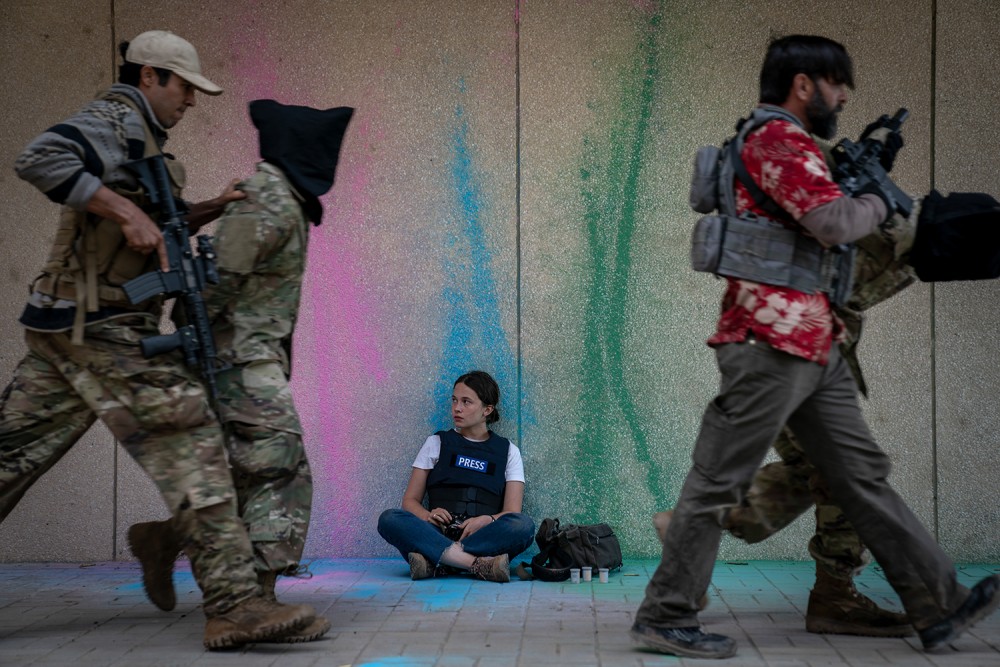Truth, lies, and video
Civil War and Fly Me to the Moon share an awareness of how malleable and fragile our sense of shared truth is in a world dominated by images.

Civil War (directed by Alex Garland) mounted a massive ad campaign to sell the movie as a summer blockbuster fueled by the dark energies pulsing out of the wound of January 6. Knowing little beyond what I saw in the trailer, I went into the theater with my liberal blood boiling, expecting a dystopic war fantasy wrapped in tragic heroism, film-length clickbait for all the disaffected bros ready to prove their masculinity with a gun.
I am not sure I have ever been so misled by a movie trailer to such powerful effect. The film follows a crew of war journalists—Lee (Kirsten Dunst), her partner Joel (Wagner Moura), veteran journalist Sammy (Stephen McKinley Henderson), and young protégé Jessie (Cailee Spaeny)—traveling from New York to DC hoping to get photographs of the US president before a group called the Western Forces overthrows the federal government. As they travel south, mostly on backroads to avoid decimated highways, they stumble across violence both mundane and spectacular, from full-out battles between the warring armies to unexplained shoot-outs. “You don’t even know who you are shooting at,” Joel says to two men in full camouflage who are trading shots with a mystery shooter in a house on a hill above them. “Who’s giving you orders?”
“No one’s giving us orders, man. Someone’s trying to kill us. We’re trying to kill them,” the shooter responds, without taking his eyes off the scope of his gun.




